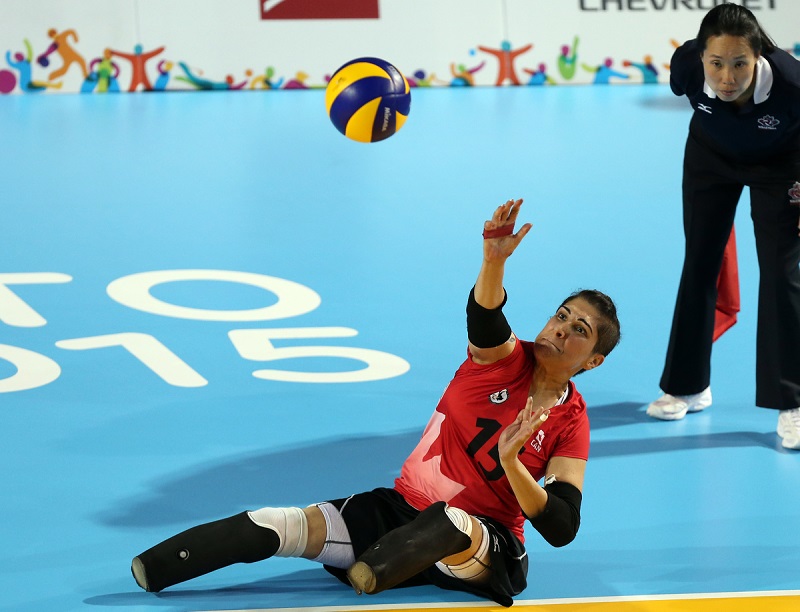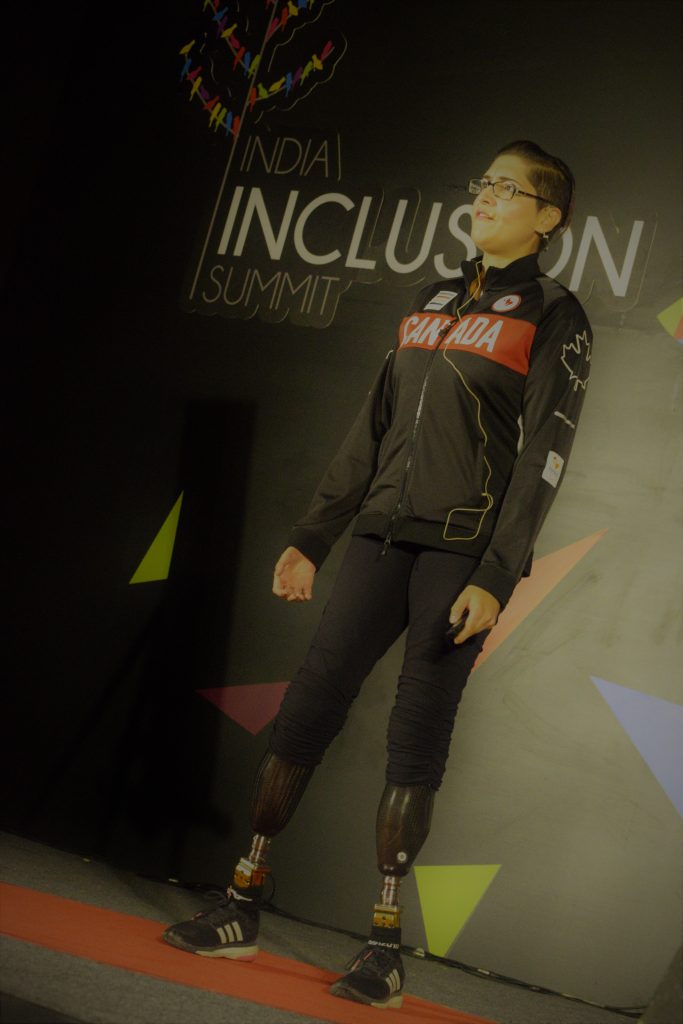Champions are often forged out of hardship, overcoming tremendous challenges to emerge victoriously. Felicia Shafiq is a champion in the truest sense of the word. We had a chance to chat with this Canadian paralympic athlete about her life, sport, and the power of leading by example.
A Better Life
Born in Fiji, Felicia’s journey began when she was only 12. She moved to San Francisco with her mother after her parents’ divorce, looking for a better life. She muses, “We found it for sure. I met former US president Bill Clinton while he was touring SF talking about the Information Superhighway, and got a job at Cisco Systems.”
But despite moving to the land of opportunity, life remained difficult. She explains,
In a freak accident, my mom injured her back and was unable to work, so at 18, I was working and going to school, supporting the both of us. I then decided to move to Canada, looking for better opportunities and family support. I found a great career at SAP Canada, made amazing friends, and fell in love with volleyball.
The Highs And Lows
Felicia’s love for volleyball has carried her through some rough times. Though she started playing relatively later in life, her passion for the sport shines brightly, even when she is discussing her most difficult experiences.
She had just returned from a holiday in Fiji, revisiting her roots, when her life was turned upside down. “On a cold morning in 2011, I woke up with the chills. I thought I had the flu, but I had a Recreational League Volleyball tournament to play, so I took some cold medicine and went to play. I got back and was still not feeling well. My lower back had started to hurt. My mom bugged me to go to the hospital, but I figured it was just the flu and I would sleep it off. By 11 pm, I wasn’t able to breathe well. I was rushed to the hospital and almost immediately put on life support. We’re still not sure what caused the pneumococcal pneumonia that caused such an acute onset of septic shock, but after 2 weeks in a coma, I woke up.”
Her doctors wanted to amputate both her legs and hands, but her family refused to allow it. They were unable to save her legs, but Felicia still retains the use of both her hands, though she has suffered some nerve damage.
Felicia admits she was terrified when she woke up to realize she had a very different life ahead of her.
Of course I was very scared. I didn’t know what was in store for me. I was very independent before, so I feared that an amputation would make me dependent for the rest of my life.
In addition to self-reflection and support from friends and family, she says that she had to make the choice to be happy in order to navigate life without fear. Her positive attitude, she believes, ensured her recovery and only enhanced her abilities.
We caught a glimpse of her indomitable fighting spirit when she quipped, “We won that volleyball tournament, by the way.”
Stepping Into The Global Spotlight

When someone first suggested paralympic volleyball to Felicia, she wasn’t entirely enthusiastic. Thankfully, she decided to give it a shot. The rest, as they say, is history. She quickly fell in love with the sport again and with her new team. Soon, they were headed to their biggest competition – the Rio 2016 Paralympics.
Felicia has some great stories about her trip, and says, “It was an amazing experience. The Brazilian people were so nice and gave us a warm welcome. It was at the opening ceremony where it finally hit us that we were finally here! We had made it and all that hard work, dedication, and sacrifice had brought us to the highest stage in sport.”
Her first appearance in the global arena was surreal, “I don’t know if you watched the opening ceremony, but it was so grand. The crowd was amazing and loud, and we tried to use that energy to our benefit. Some of us were hoarse from screaming because we couldn’t hear each other on the court while playing due to the cheering and the noise. It was incredible. Each match we played had 4000 – 8000 people, it was just wild.”
For Felicia, one of the greatest aspects of the tournament was rubbing shoulders with others who shared some of the same challenges. She elaborates,
Meeting other athletes from other countries was incredible. There was great camaraderie since we all had similar differences, and you could see what the human spirit can overcome and achieve. These are people who don’t let their disabilities define them, and do whatever it takes to excel in their respective sport.
The Long Road To The Rio 2016 Paralympics
No woman is an island, and Felicia, though she values her independence, is cognizant of that. Though she was used to doing things by herself, she has since learned to value support from her loved ones, “I rely heavily on my support network that I have built over time. Having a strong support network is so helpful and important.”
She says, “My friends and family have been very supportive. I’ve included my mom and my best friend, Faiaz, in my practices so they feel like they are a part of this important aspect of my life. I’ve encouraged my other friends to join and help out in practices, and they do when they are able.”
On a professional level, Felicia is flourishing. She is still working at SAP, and says, “Sitting volleyball does take me away from work and home quite often, but SAP has been amazing in that regard as well, giving me time off above and beyond normal to allow me to compete and train. Training for sitting volleyball, or any sport for that matter, requires dedication, sacrifice, and a positive attitude. My friends and family understand this and support me.”
Staying Positive, Staying Motivated

A natural leader, Felicia has some important wisdom to share, “ I try to lead by example. I try to stay positive, although I have my bad days. I let others know that it’s OK to feel sad, and depressed, but that they should try to find a way out of it, and not stay there too long. Acceptance was a big thing for me. Once I accepted my situation, I was able to move forward. I had to learn to ask for help and accept help when it was given. Asking for and accepting help is not a sign of weakness.”
She continues, “I’ve found great joy in giving back in the form of being a peer visitor and talking to people with impending limb loss or people who have already had their amputation. I found it very helpful to participate in support groups, and I find it very rewarding to teach kids with different abilities to play sitting volleyball.” Felicia admits,
It is difficult to stay positive. I found that I needed to focus on goals that I set for myself, to focus on things that gave me joy like sharing my story, playing sitting volleyball or even teaching kids. I’ve learned through this experience to stand up for myself and to advocate for my healthcare.
Today, Felicia Shafiq is a powerful voice for others who experience such challenges. A force to be reckoned with, her philosophy is deceptively simple, “By working hard to achieve your goals, everything is possible.”
We couldn’t agree more!
KnowYourStar.com (KYS) interviewed Felicia Shafiq as part of India Inclusion Summit(IIS). IIS is a platform that brings awareness and drives the inclusion of specially-abled people at corporates, schools, policy makers and NGOs. Yes, KYS is official blogging partner for IIS and backs the event wholeheartedly in a thirst to see a more Inclusive India.
Liked reading this? Then you might also like to read about Ghatam Suresh Vaidyanathan – The Pele Of Percussion.
If there’s any story that needs to be told, we will tell it. Write to us at contact@knowyourstar.com with your story lead, or contact us on Facebook or Twitter.